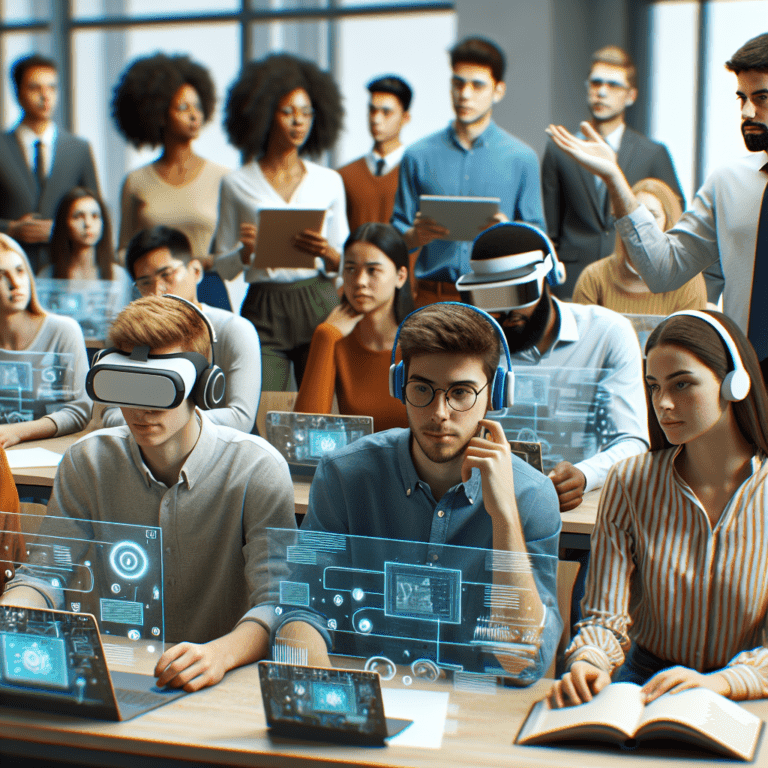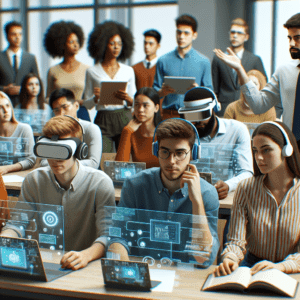The Future of Learning: Innovations in Online Professional Education
In recent years, the landscape of professional education has undergone a remarkable transformation, fueled by advancements in technology and a growing emphasis on lifelong learning. As industries evolve and job markets shift, the need for continuous skill development and knowledge enhancement has never been more pressing. This has led to an array of innovative approaches in online professional education that are reshaping how individuals pursue career growth.
Personalized Learning Experiences
One of the most significant shifts in online education is the move toward personalized learning experiences. Using artificial intelligence and data analytics, educational platforms can now tailor content to suit the specific needs, learning styles, and speed of each individual. This customization not only enhances engagement but also optimizes retention, ensuring that learners acquire the skills they need to thrive in their respective fields.
Blended Learning Models
Blended learning, which combines traditional in-person instruction with online components, has gained traction in professional education. This model allows learners to benefit from direct interaction with instructors and peers while also engaging with multimedia content and resources online. Such an approach fosters a richer educational experience, accommodating diverse learning preferences and promoting a more collaborative environment.
Microcredentialing
Microcredentials have emerged as a significant trend in professional education, providing a flexible way for individuals to gain and showcase specific skills. These short, focused courses allow learners to earn certifications in niche areas, making it easier for employers to find candidates with relevant expertise. This approach not only enhances workforce development but also empowers individuals to take charge of their professional growth.
Gamification
Gamification, the application of game-design elements in non-gaming contexts, has found its way into online learning platforms. By incorporating elements such as progress tracking, badges, and leaderboards, educators can create a more engaging environment that motivates learners. This innovative approach taps into the natural competitive spirit and encourages continuous participation and a deeper connection to the content.
Virtual Reality and Augmented Reality
The integration of virtual reality (VR) and augmented reality (AR) technologies into online education is revolutionizing experiential learning. These immersive tools allow learners to simulate real-world scenarios, practice skills in a controlled environment, and gain hands-on experience without the associated risks. As these technologies become more accessible, their potential to enhance professional training is immense, particularly in fields such as healthcare, engineering, and construction.
Collaborative Learning
Online professional education is increasingly embracing collaborative learning strategies. Virtual classrooms and online discussion forums enable professionals from diverse backgrounds to come together, share insights, and learn from one another. This collective approach fosters a sense of community and enriches the learning experience, equipping individuals with varied perspectives and solutions to complex problems.
Continuous Feedback Mechanisms
The importance of timely feedback in education cannot be underestimated. Innovative online platforms now incorporate continuous feedback mechanisms, allowing learners to assess their understanding and progress regularly. By leveraging quizzes, self-assessments, and peer reviews, educators can provide insights that guide learners in their journey, ensuring that they stay on track and achieve their goals.
Emphasis on Soft Skills
As the job market evolves, so does the skill set required for success. Online professional education now places a greater emphasis on soft skills, such as communication, teamwork, and critical thinking. Many programs are incorporating these essential competencies into their curricula, often through interactive projects and real-world scenarios, to prepare individuals for the complexities of modern workplaces.
Conclusion
The future of online professional education is bright, characterized by a wave of innovations that cater to the evolving needs of learners and employers alike. With personalized experiences, blended learning models, microcredentialing, gamification, immersive technologies, collaborative opportunities, continuous feedback, and a focus on soft skills, the educational landscape is becoming more dynamic and responsive. As technology continues to advance, these innovations will play a crucial role in preparing the workforce of tomorrow, making professional education more accessible, engaging, and effective than ever before.







